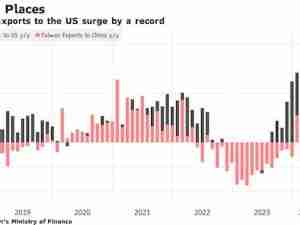The two leaders were scheduled to meet on the sidelines of an Asia-Pacifc summit in South Korea, where Martin headed immediately after addressing reporters in Parliament.
Martin said he would not soften his stance despite a ruling in favor of the United States from the World Trade Organization (WTO) on Nov. 15.
"Not a bit. And in fact the WTO decision is largely irrelevant to this," he said.
The problem is that both the WTO and the North American Free Trade Agreement (NAFTA) have pronounced on various aspects of the perennial dispute, sometimes siding with Canada and sometimes with the United States.
Washington says this means they should negotiate a settlement, but Martin says NAFTA came to a final verdict on one aspect which requires a refund of $3.5 billion of duties.
"The fact is that what we're talking about are NAFTA rules, NAFTA panels which we have won consistently so let me be unequivocal," he said.
"We are in the right. We are not going to negotiate a win. The Americans...owe Canadian companies $3.5 billion. The fact is that Canadian companies are in the right and I'm not going to back off of that."
The dispute centers over US assertions that Canada's $6 billion of annual shipments of softwood, used in home building, are subsidized and dumped into the US market.
The United States said that the Nov. 15 WTO report found that the duties it had leveled were properly imposed under international trade law. It says the NAFTA ruling had no bearing on a more recent claim it made.
Martin said he would also encourage Bush to reconsider plans to open up oil drilling in the Arctic National Wildlife Refuge, especially in light of congressional developments.
Republican leaders in the US House of Representatives dropped language from budget legislation that would have authorized drilling in the refuge, which is near Canada's Yukon Territory.
Ottawa opposes it on the grounds that it would ruin the calving ground of the Porcupine caribou herd, which is found on both sides of the border. (Figures in US dollars) (Reuters)








